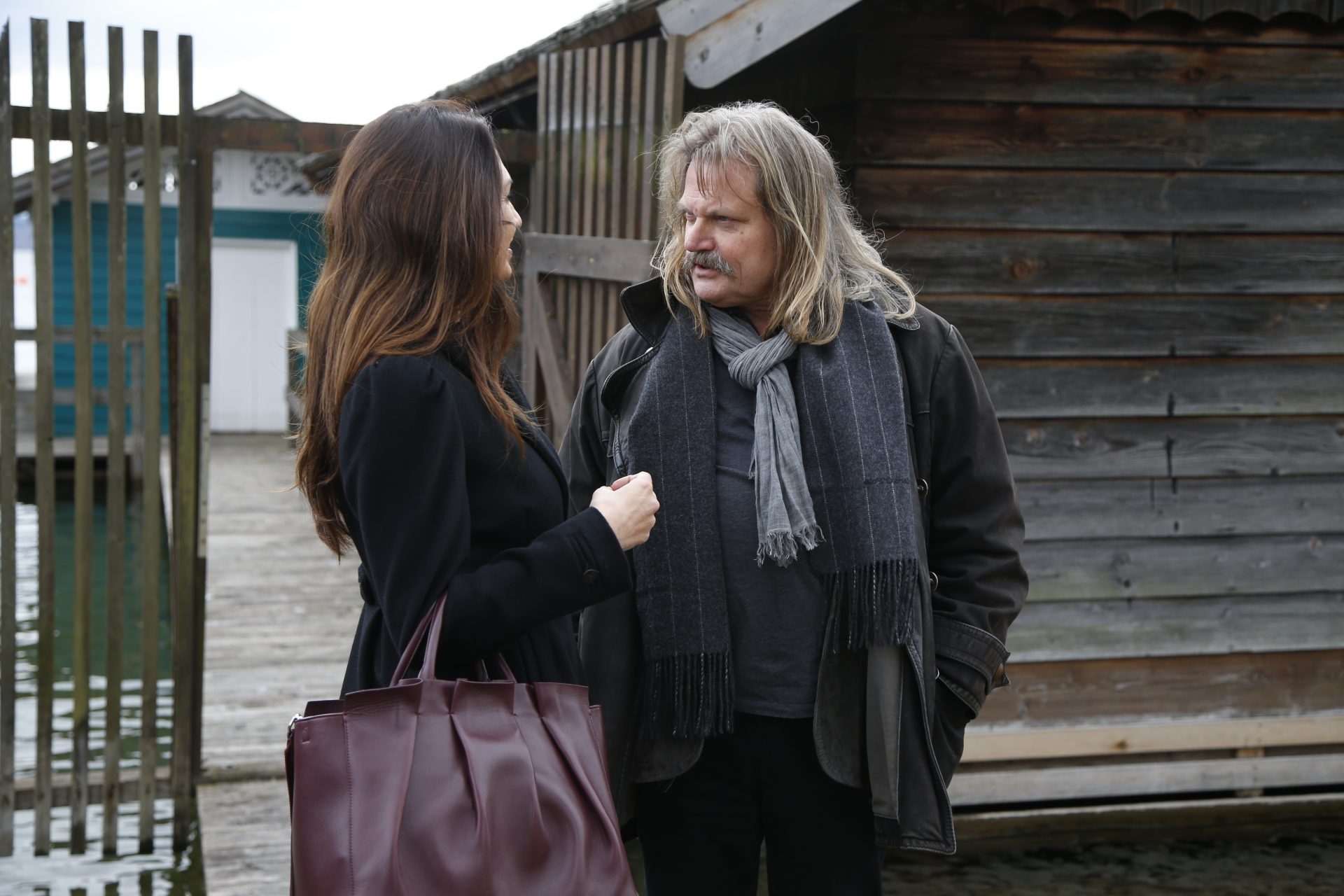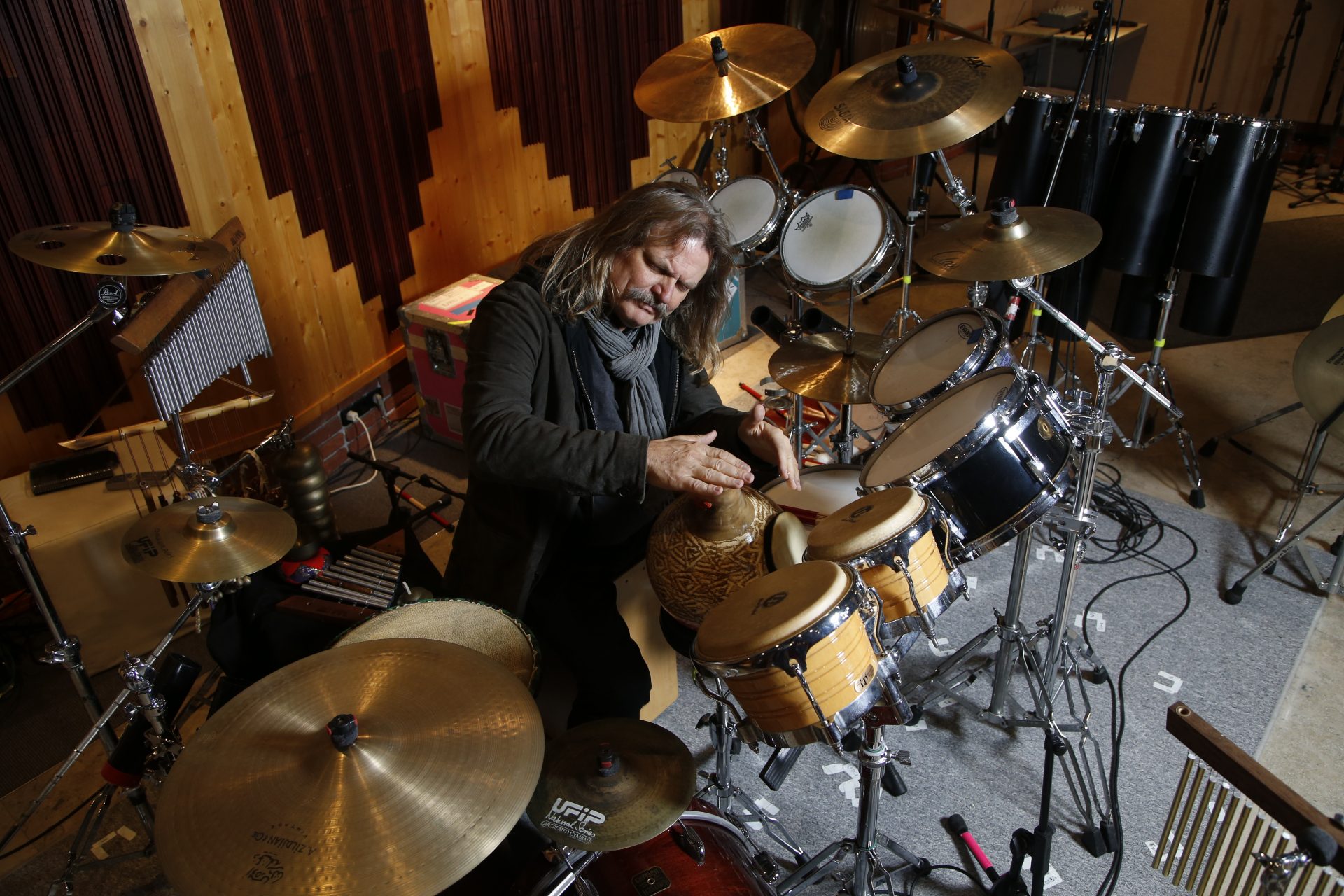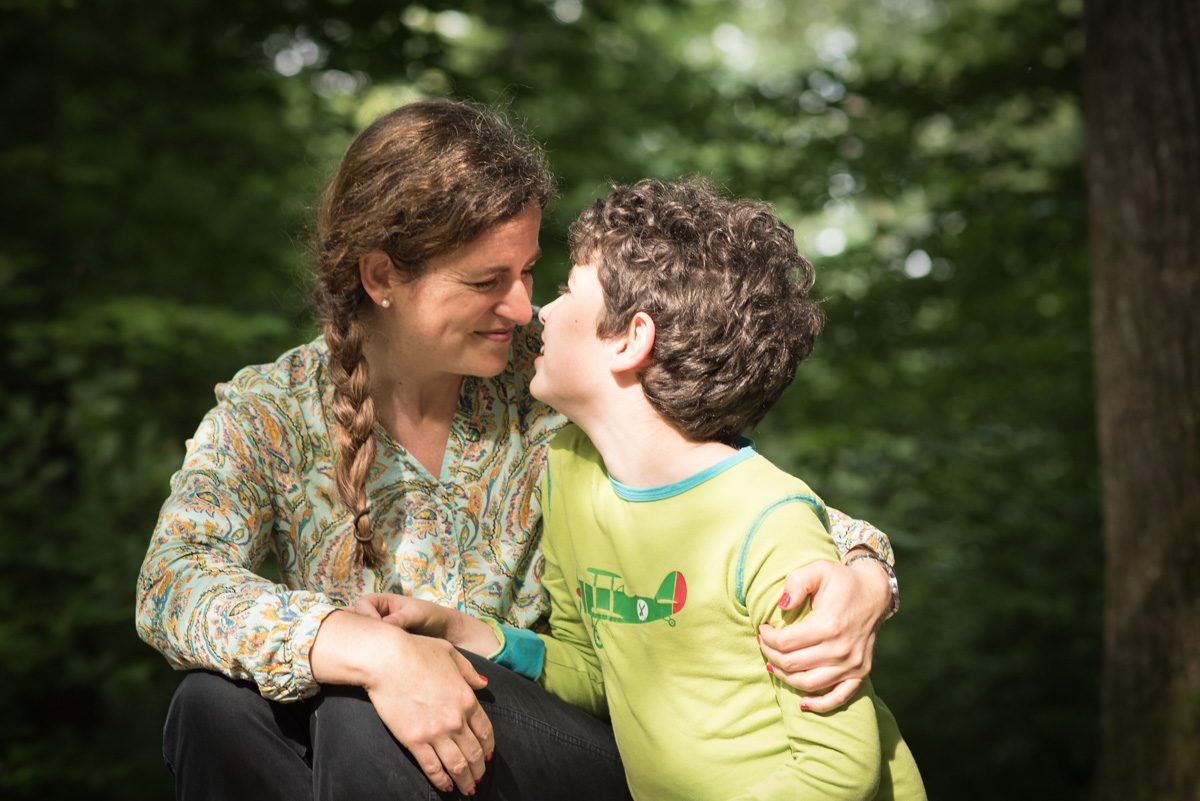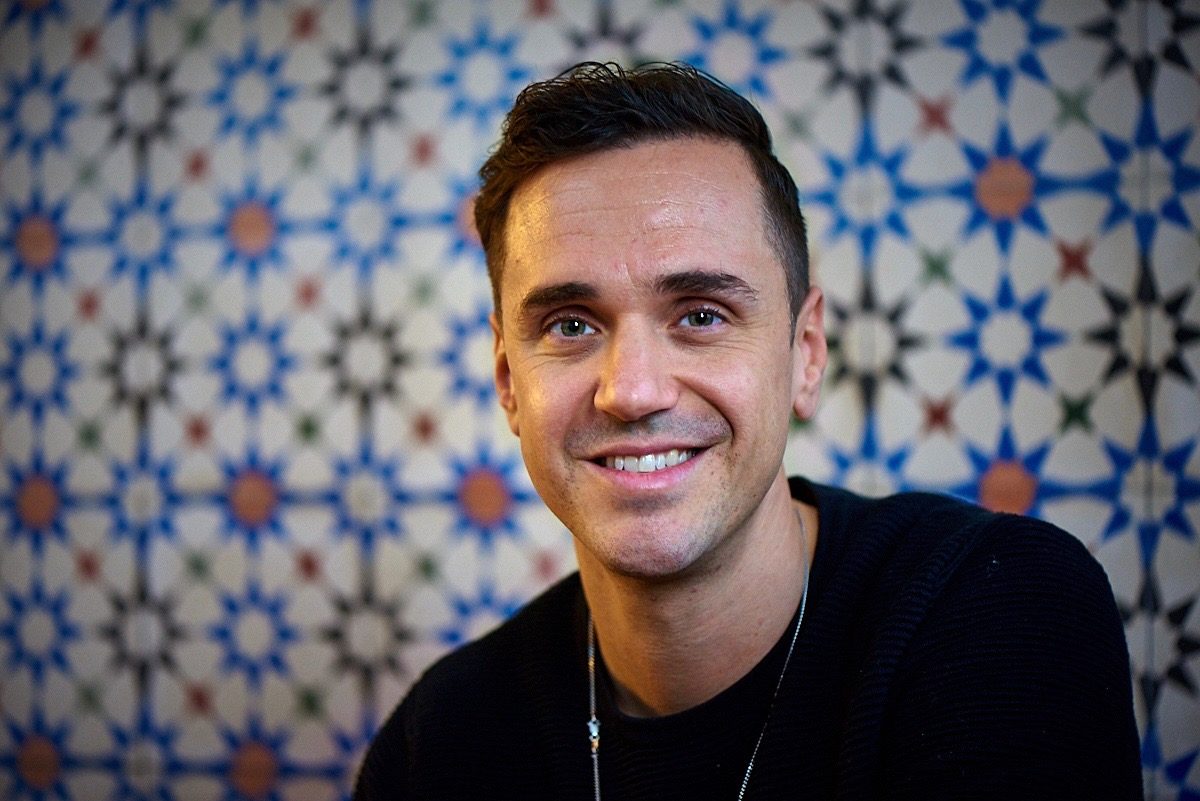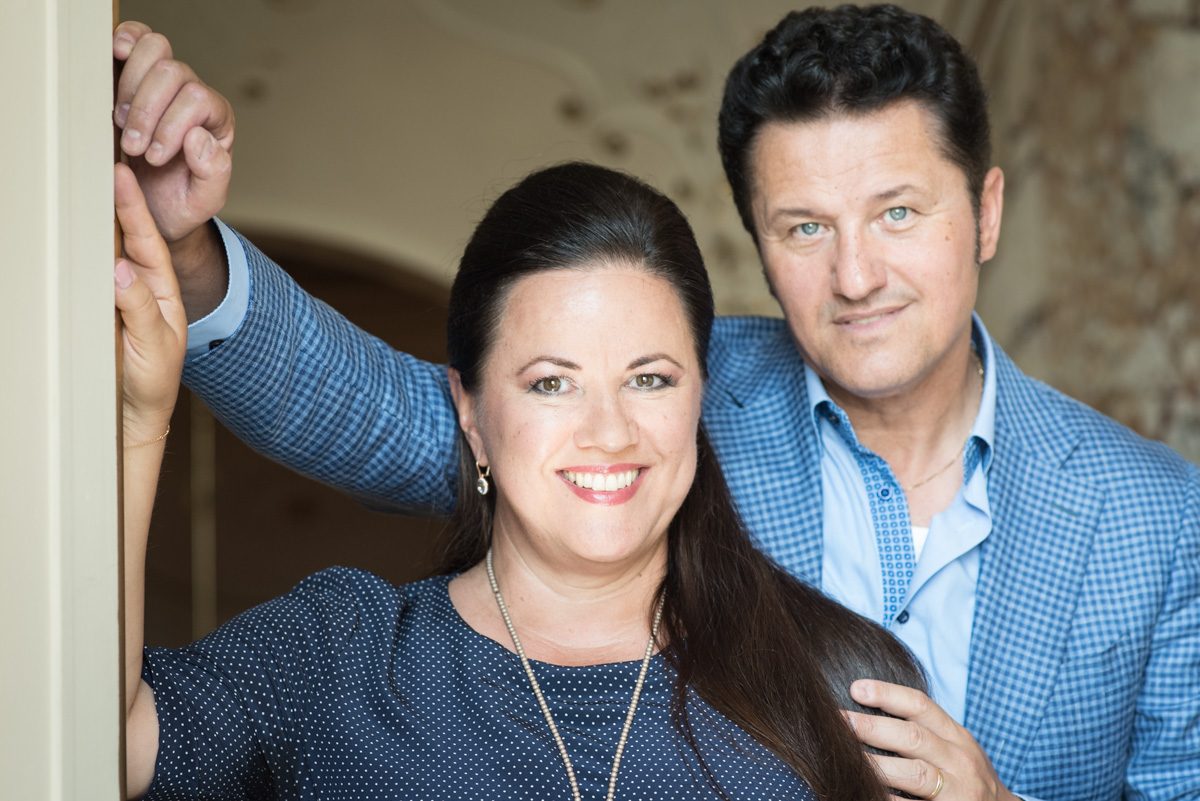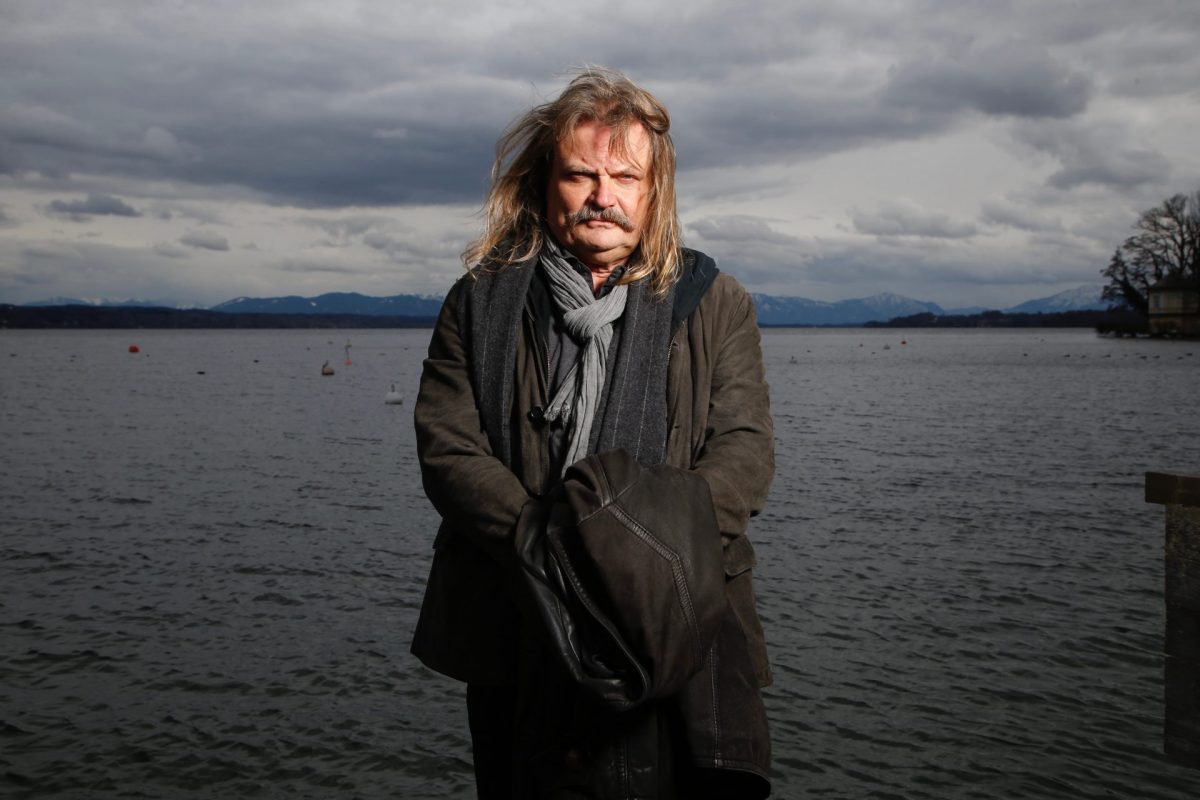
“I was ready to give my life up for freedom.” Leslie Mandoki, musician and producer
At 22, he fled Communist Hungary and became an enemy of the state dictatorship. Today, Leslie Mandoki, 65, has links with both Hungarian Prime Minister Viktor Orbán and German Chancellor Angela Merkel and works to build bridges.
He’s the antithesis of androgyny. Instead, he’s the epitome of an archaic man, standing before you with his long mane and hard stare.
I must have met him about a decade ago, at the Berlinale film festival. I was sitting there in my evening dress at a table full of men. Some women like going to events on their own, and I admire them. I wasn’t entirely comfortable myself, particularly as Berlin isn’t my turf and the seat beside me was unoccupied.
From a dramatic escape to a pop band
I kept peering at the entrance to see if I could make out who would be coming to sit next to me. The door opened, and there he was. I knew right away that the seat beside me was his.
What I didn’t know was the moving story Leslie Mandoki had to tell. That he was born László Mándoki in Budapest, joined the opposition as a student, and was imprisoned 17 times before he fled the Communist regime in 1975 in a perilous cloak-and-dagger operation through a railroad tunnel.
That four years later, he snagged fourth place for Germany in the Eurovision Song Contest with the band Dschingis Khan and their self-titled entry, and that the group enjoyed real success, topping the charts in Germany, the Soviet Union, Japan, Australia, and Israel.
That Mandoki, who was classically trained at the Budapest Conservatoire, now considers the band, produced by Ralph Siegel, a tiresome pop phase.
I didn’t know any of this when he sat down beside me at the Berlinale. Nor did I know that he had manned the boards for Phil Collins, Lionel Richie, Chaka Khan – musicians whose photos almost entirely cover his studio walls. Today he shares the international stage with the biggest names in jazz and rock as part of his ManDoki Soulmates music project.
A fittingly harsh backdrop
He is always on the move and it’s a challenge to pin him down for an interview. After a little back and forth, we meet at his studio in Tutzing, by Lake Starnberg, Germany. He has lived here for decades, right next door to his lifelong friend, the musician Peter Maffay.
Mandoki raised three children here with his wife, a doctor. Now adults, all three of them have joined their father in the spotlight: Lara, an actress, Julia, a singer, and son Gabor, a musician who co-produces some of his father’s shows.
Dark clouds hang low above the water. It’s a bleak and rugged setting. The ideal backdrop for this man – and our conversation.
A radically intense life
Anna Maier: When someone asks you how you are, “my life is radically intense” is your most frequent reply. When do you find moments of peace? Is there a chilled-out version of Leslie Mandoki?
Leslie Mandoki: Of course, he exists. When I’m out sailing on the lake, when I go out in the canoe, these are real moments of peace. But not in the studio, where I’m sometimes surrounded by 25 people from morning till night. Talk of peace here would be off the mark. But out there on the lake, that’s where I find it. Usually very, very early, around 5 am when the sun comes up, whatever the weather, even in winter. It’s beautiful when there is snow on the ground and icicles hang from the boathouse.
Do you share these moments with someone else, or do you have to be alone?
Let’s put it this way: when the kids were still young, I liked sharing that time with them. Sometimes I would even paddle them to school or nursery early in the morning. Today, I have an apartment in my home city of Budapest as my retreat. I can unwind there. It’s fantastic. I like watching people, just going out into the street and soaking up what I see. That makes me feel peaceful. I love being in cities where I feel at home.
You were a political refugee and fled Hungary under dramatic circumstances, almost lost your life, and then became an enemy of the state in Hungary after you left. What did it take for you to feel at home in Budapest again?
The dictatorship collapsing. I didn’t want to go back until the dictatorship, and all its traces in people and structures, had disappeared. Even though the city will always be marked by the traces of the war and the 1956 people’s revolution.
“I was ready to sacrifice my life for freedom.”
Three years ago, I was in Budapest with my three children and we set up our apartment. It’s in the heart of the city’s old town. On a wall, we saw a massive painting, about 20 by 10 meters, of the cover of Time Magazine from 1956: “Man of the Year,” a student from Budapest who had struggled against Communism.
In that moment, I realized that my children weren’t at all able to understand how people their age had such a longing for freedom that they were ready to give their lives for it.
My son already had his first degree under his belt, and I said to him: “OK, let’s make a documentary, following in your grandfather’s footsteps.” So I took him first to Moscow to see Mikhail Gorbachev, the previous President of the Soviet Union. I asked him and lots of other interesting figures including witnesses of the period who are still alive today, historians, and experts, about the subject.
Then I looked for documents on the Hungarian people’s uprising in all the state archives that were available, including the American ones. I ended up with masses of material. That was the basis for my book, Sehnsucht nach Freiheit (Longing for Freedom), and the documentary that accompanied it.
“How do we convey this longing for freedom to the Facebook generation?”
Did you make this historical document because of your children, to explain the story of your homeland to them?
Of course, my children are aware of the historical circumstances. For me, it was more about this important question: how can we communicate this longing for freedom that led 22-year-olds like me to flee and risk death to the Facebook generation?
For our children, freedom is like bread or water. They take it for granted. But I wonder, looking at the current developments in Europe, whether taking our freedom for granted doesn’t automatically place it in jeopardy.
“I understand the position of an illegal immigrant.”
I believe we’re now living in a time where Europe is experiencing a reboot.
I’m OK with that. I find two aspects downright tragic: one is that we in central Europe, and particularly we Germans, are reluctant to impart the set of values that rose from the ashes of the Nazis’ reign of terror, let alone defend or simply to present those values as normal. We say, “Look, where we live, women are equal. They are doctors, lecturers and entrepreneurs. We don’t tolerate multiple marriages, we don’t have our children married, we don’t put up with homophobia or anti-Semitism, and religious freedom goes without saying.”
Our separation of state and religion is an incredible asset. It can’t be that people receive sanctuary for humanitarian reasons but we ourselves fail to communicate a binding code of values to them.
Do you have a different approach to this issue because you were once a refugee yourself?
Yes, of course. I understand the position of an illegal immigrant and an asylum seeker. At 22, I got to know the asylum system almost from the inside, all the stages of becoming a citizen. And I’m really thankful for the welcoming, tolerant, obviously open society I found. That’s exactly why I want to keep it that way.
“The Chancellor of Germany is aware of my opinion.”
I’m not critical at all of those who come to our country and have a different culture and set of values. I’m critical of our own behavior, also of myself as well. I could do a lot more to build bridges.
You and the Chancellor of Germany, Angela Merkel, have a friendly relationship. Do you tell her what you think needs to change politically?
It’s true that I’m in touch with key figures in her party and that we discuss a great deal. As an artist, I wouldn’t be so presumptuous as to give them advice. But everybody knows what I think, even the Chancellor. I always express my viewpoint clearly, wherever I am.
I also draw comparisons between the two countries I’m culturally connected to.
However, there are extreme differences between these two countries: Hungary’s Prime Minister Viktor Orbán is seen as a hardliner in terms of refugee policy and an adversary of German Chancellor Angela Merkel. What’s your stance on this?
I’d like to see a European Code of Integration. The 28 member states of the European Union should really sign a Code of Integration on how we deal with our immigrants that’s binding across the board.
In my opinion, all Hungary is currently doing, although it might sound shocking to say it, is upholding European law. After all, the Schengen Agreement says that those who have an external border must protect it. Hungary has an external border. Germany doesn’t. So we have to create a situation where people are registered – not like how I was able to flee to Germany back then, as an illegal immigrant.
“It’s always better to discuss and argue about something than to not communicate at all.”
Try to travel to America tomorrow with a false identity. You can’t do that in Hungary anymore either. And in Germany you can. Here, a false identity has become something of a petty misdemeanor. In Hungary, it’s seen differently, also from our long history of occupation by the Ottoman Empire, which spanned 180 years.
Can you really take a critical look at Hungary?
Let me put it this way: I have a completely critical approach in every direction. But what I can’t bear, what I refuse to do, is to burn bridges.
Viktor Orbán recently visited you here in Tutzing. How did that come about?
He happened to be in Bavaria and he said, I’d like to visit you.
Viktor Orbán called you up and asked if he could visit you?
Not if he could. He said: “What about inviting a few German intellectuals to your place? I’d like to better understand the German spirit.” And I think that’s exactly the right approach. He said: “I’m a big fan of Schiller and Goethe and Bach and Beethoven and Hegel and Kant. It would be really interesting to arrange a night at your home where discussions can be had with German intellectuals. For a better, mutual understanding.” And that’s just what we did.
Who was there?
The country’s elite. It was a safe space for exchanges to take place. We have to create these forums because it’s always better to discuss and to argue about a better world than not to communicate at all. And that’s why I also thought it was good, smart and forward-thinking of Viktor Orbán to ask me to invite intellectuals – including left-wing intellectuals – from the country to a spontaneous dinner and to ask them: “okay, what makes a left-wing intellectual in Germany tick and how does an educated Hungarian think?”
And do you know what sort of conclusion he took away from it?
Because the exchange took place in a protected space, the discussion could be held in an open manner. I hope that every guest took home a better understanding of Europe.
“I wouldn’t be presumptuous enough to think my opinion is important.”
I think it’s remarkable that he’d call you for this kind of meeting. You would think that he’d seek out this kind of gathering in the political scene in Berlin. How do you know him so well?
He approached me backstage at a concert once. That’s where we got to know each other. He probably saw me as a connection: I’ve lived in Germany for many years and I understand the German point of view, but I’m also a Hungarian by birth. And I understand both mindsets. When I’m in Hungary, I try to bring the German spirit across. When I’m here in Germany, I try to bring the Hungarian spirit across.
How important do you think it is for artists who reach a lot of people to show a political stance?
I wouldn’t be presumptuous enough to think my opinion is important. My music is what’s important to me. We just played in New York, and I talked there too about how there are so many people who post on social media every day about what they eat, what they’re wearing. I don’t think anyone’s interested in what’s on my plate. I reveal much more intimate things from my life.
“Our music is like a handwritten love letter to our audience.”
Through music?
Through my songs. They say more than 10,000 posts. Of course, artists also have a certain sense that they have a mission. I try to play my music and make some sort of impact, although pop music is often seen as more of a short text message. I want my music to be more like a handwritten love letter to our audience.
You’ve been making music for decades, working with some of the biggest artists of our time. You’re on first-name terms with European politicians. You make films, you write books. You seem fearless, like someone who just gets things done. Is “anything is possible!” your motto in life?
In some ways, yes it is. In New York, at our last concert, there was a standing ovation. My eyes filled with tears of joy. I was deeply moved. It was a wonderful moment of recognition. And I don’t take it for granted. I never do.
ManDoki Soulmates performing in the Beacon Theatre NY. www.mandoki-soulmates.com
“You’re just leading the losers.”
I grew up in Hungary during the dictatorship and my father always said to me: “Son, the only way to beat this dictatorship is through education.” He had clear expectations that I should be top of my class. That was sort of a given. Then in fourth grade, I was only the second best. That deeply affected him. I said: “Dad, out of 170 students, I’m number two!” He answered: “No. “You’re just leading the losers.”
A psychologist or analyst might say: “What a poor guy, that Mandoki. What a terrible father.” I worship my father, he was a brilliant person, and he wasn’t terrible, but he was very aware that you could only escape the dictatorship through education.
“My grandchildren should never have to read censored newspapers.”
He died of cancer when I was 16. That was the darkest moment of my life. And on his deathbed he told me: “Son, the worst thing about having to go now is that I won’t know my grandchildren. But you must promise me one thing: my grandchildren will never read censored newspapers.” So I said: “But Dad, the Iron Curtain…” And he replied: “No, no, that’s nothing to you, find your way and live your dreams, don’t dream your life.”
And that was my guiding principle: “Dreams can only fly on the wings of freedom.” Which means: what’s success if it doesn’t mean living in freedom? And being able to flourish. I have ideas that I would describe as visions, and then I try to develop the strength to make them come true.
“What’s the situation here with free media?”
But how does it feel when your father says he doesn’t want his grandchildren to grow up with censored newspapers and in Hungary, your homeland, censorship is taking place?
First of all: Bavaria is my home now. Hungary is the land of my birth. I feel Hungarian in my heart; that’s where I’m from. I feel connected to the culture and my native tongue. But I’m at home in Bavaria. I feel the highest level of identification here.
I know that in the West, there’s a widespread assumption that censorship is taking place in Hungary. And precisely because the issue has been crucial in shaping my life story, I delved deep into it.
I visited a German journalist living in Budapest, Jan Mainka, a former resident of the GDR, who stayed in Budapest in 1989 and fell in love there while he waited for the borders to open. He founded a Budapest newspaper. I asked him: “Jan, what’s it like? You’ve been living here since 1989. What’s the situation here with free media?” He replied: “There’s no censorship.” And he went through it with me.
Then I went back to the hotel in the evening and read the Süddeutsche Zeitung that I brought with me from Munich. And coincidentally, that very day, it just happened to repeat that the Hungarian media and television wasn’t free. So I sat in the hotel and did some channel-surfing.
“Free media is a key pillar of democracy.”
I lingered on RTL Klub, Hungary’s biggest private broadcaster: the news was full of criticism aimed at Orbán. When I flipped through to the news on ATV, the first private TV broadcaster in Hungary, almost the entire show consisted of critical reporting on the government, and the same thing for the news broadcaster HIR TV.
The next day on the way home, in the Senator Lounge, there were nine daily papers. And all nine of them were verbally attacking the Prime Minister on their covers. I was shocked. That was a year ago. I asked myself: If there was a censorship authority, then surely all of that wouldn’t exist?
But we read about media law in Hungary allowing the authorities to monitor and punish broadcasters, newspapers, and online portals. We receive information telling us that media outlets criticizing the government are being muzzled. Yet you say you haven’t experienced any censorship there. How do you explain that?
Freedom and entirely free media have been a lifelong issue for me and are one of the most important pillars of democracy. That’s why critical journalism is a matter of course for me. 25 years ago, there were about 20 German journalists reporting from Budapest for publications like the Süddeutsche Zeitung, FAZ, Die Zeit, Spiegel, Stern, Focus. As far as I know, not one of them is left. Why not?
“I’m as much of an idealist now as I was when I was 16.”
You have a political stance, and you make statements that certainly rub some people up the wrong way, too. You’re the opposite of the perfectly cast poster boy. And you’re still playing big stages, getting standing ovations. How does that work?
I think that people are hungry for honesty and authenticity. I often say on stage: I don’t know the truth. But I’m honest. And I say what I mean, and a lot of people see that as an affirmation of integrity.
Why does it work for you and not for so many others?
Maybe it’s the unconventional aspect, the rebellion at heart. The fact that I’m as much of an idealist now as I was when I was 16. Of course, I’ve had some big swings back and forth in my life, but I’ve tried to keep my center. And above all, I feel exceptionally humble towards my audience. So I could thank every individual deeply and humbly for letting me into their lives. The love of our audience is an obligation for us. It signifies responsibility.
In what way?
My life has given me a great opportunity to observe social dynamics and how things operate in society from the front row. Where Prime Ministers come and sit at my dinner table with decision-makers from industry and the media.
I’ve had the honor, the privilege, of working with everyone from Lionel Richie to Phil Collins, and having them here with me. I told myself that I owe it to my audience to give back everything I learn in my attitude and my music.
“I’ve got plans for another 40 years!”
You’re 65 and you’re showing no signs of quietening down. In fact, you’re just getting louder. Will we ever see a retired Leslie Mandoki?
What are you talking about? That’s how it is, after a four-and-a-half-hour concert …
… would you like to retire?
No, no, no. The only problem I have after a four-and-a-half-hour concert is that I actually feel so full of testosterone that I’d like to do it all again from the beginning.
Will you die on stage? Would you like that idea?
Nonsense. I’ve got plans for another 40 years. I’ve always lived a wild life and I’ve never really been seriously ill. Fate, God, Karl Marx, or whoever is in charge has been good to me. Even my grandparents both grew old. So to that extent, I have hope that this radically intense pace of life doesn’t just let you wear away.
No golfing (laughing)?
No, I don’t have time. One project is always followed by another, I’m always thinking of things I’d like to do. At the moment, I’m working on two films and film music and lots of exciting things.
“My appearance originated in rebellion.”
Your long hair and the mustache – what would have to happen for you to change your appearance? Is it your kind of rebellion?
It was, for sure, because we weren’t allowed to have long hair or a mustache until we were leaving high school. Every week, our hair was measured. It wasn’t supposed to be longer than the standard length. Of course, letting my hair grow was a form of rebellion after leaving school. And then I just kept it that way.
Will it always stay that way?
I don’t know, why not. I’ve never shaved off my mustache. So I don’t really know how that would work.
Interview: Anna Maier
Newsletter
Subscribe to our newsletter and you'll get notified every time a new article is online.





